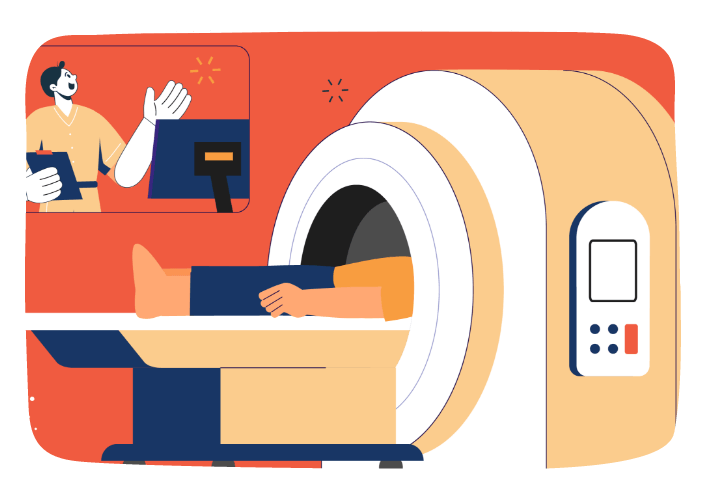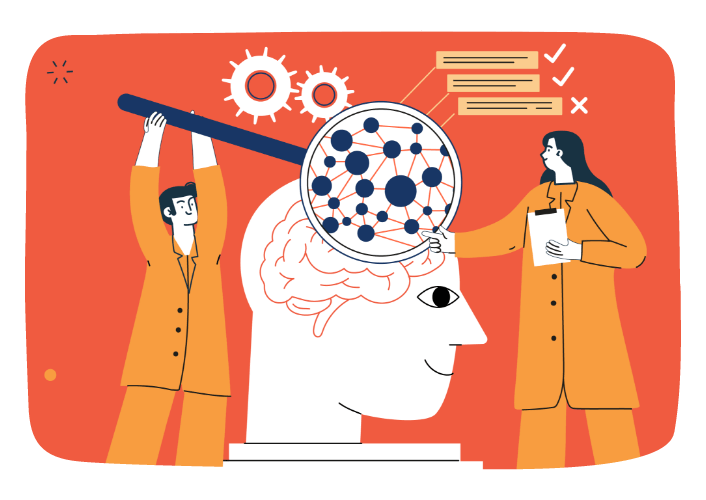MS is a leading cause of non-traumatic disability for young people; and is commonly diagnosed in women between 20- 40 years of age.

MS is a leading cause of non-traumatic disability for young people; and is commonly diagnosed in women between 20- 40 years of age.

In India, the prevalence of MS in India is growing, and therefore diagnosis is important. Diagnosing MS can be difficult, as the initial symptoms are varied and can be hard to distinguish from other conditions. Unfortunately, there is no single diagnostic test for this condition- doctors usually do a combination of diagnostic tools to confirm the disease, which include:

This is one of the most important tests where MRI scans and identifies lesions (patches of demyelination) in the brain and spinal cord.

A sample of CSF is taken from the spine and analysed for abnormalities. This test helps identify oligoclonal bands (OCBs), which are unique antibodies found in the cerebrospinal fluid but not typically in the blood. It also looks for an elevated IgG index, indicating heightened immune activity within the central nervous system. Both findings are strong indicators of MS.

The tests quantify the electrical responses generated by the nervous system to stimulation (visual, auditory, sensory). Disruption in these responses indicates nerve injury and can detect lesions in regions that are not visible on MRI or via clinical testing.

Blood tests are unable to diagnose MS, but they are important to help exclude other conditions that may present as MS symptoms, including some infections, vitamin deficiencies (e.g., vitamin B12 deficiency), and other autoimmune diseases.
The gold standard remains the McDonald criteria: a tool for neurologists to ensure that they provide an accurate diagnosis of MS as early as possible, and guide them to the tests they should arrange for you in order to be sure. The criteria were last revised in 2017, and these are the criteria currently in use. In 2024, a new revision process began, to take into account recent advances in imaging and research. Over the coming months, the 2024 revisions are likely to be published and used more widely.
Early diagnosis of MS is crucial to avoid long-term disability and enhance the quality of life. Early treatment, particularly with disease-modifying drugs, can effectively help manage the course of the disease and decrease the frequency of relapses. India suffers from poor awareness and access to neurologists, especially in smaller towns, resulting in delayed or missed diagnosis. Informing general physicians and the community at large about early warning signs, such as sudden vision disturbances (optic neuritis), numbness, or balance problems, can be crucial in early detection and establishing early referral pathways. Initiating treatment at the earliest stages with a therapy that addresses progression and not just relapses becomes imperative to safeguard the physical and mental capabilities of individuals with MS.
© 2025 F. Hoffmann-La Roche Ltd. All trademarks used or mentioned on this Website are protected by law.
The information on this Website is for awareness purposes only and should not be used to diagnose, treat, cure or prevent any disease without the advice of a qualified medical professional, and does not replace medical advice. Any and all opinions, statements, testimonials on this Website are those of the individual and not of Roche. This website is neither intended nor disguised for sale, marketing, promotion of any of Roche’s products. This website is neither intended nor designed to record or report adverse event information regarding any Roche product. If you have a suspected side effect or problem to report regarding one of our products, visit us at https://www.rocheindia.com/contact OR please call the Roche India Safety Unit on +91-98201 63752 or E-mail us at india.drugsafety@roche.com